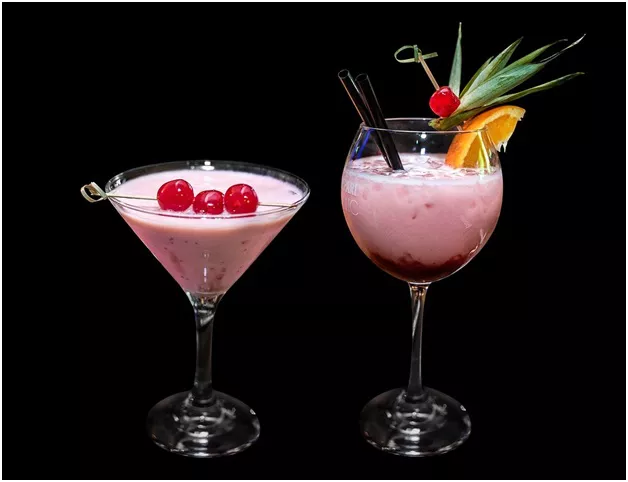Spirit drinks hold a special place in the world of beverages. They are enjoyed for their unique flavors and complex profiles. But what exactly constitutes a spirit drink? In this article, we will explore the definition, characteristics, and classifications of spirit drinks. We’ll also delve into the processes involved in creating these beloved beverages and highlight some popular examples.
What Are Spirit Drinks
At their core, spirit drinks are distilled beverages with a high alcohol content. Unlike fermented drinks, such as beer or wine, spirits undergo a process of distillation. This process concentrates the alcohol and flavors, resulting in a potent and often complex drink.
Distillation: The Heart of Spirit Production
Distillation is a crucial step in producing spirit drinks. It involves heating a fermented liquid to separate alcohol from water and other components. The alcohol vapor rises and is collected, cooled, and condensed back into liquid form. This method not only increases the alcohol content but also enhances the flavors.
Types of Distillation
There are two main types of distillation: pot still and column still.
Pot Still Distillation: This traditional method involves heating the liquid in a pot-shaped still. It is often used for producing whisky and rum. Pot stills allow for greater flavor extraction and produce a richer spirit.
Column Still Distillation: This method uses a continuous column to distill the liquid. It is more efficient and often used for producing vodka and gin. Column stills yield a purer spirit with fewer congeners.
Classification of Spirit Drinks
Spirit drinks can be classified into several categories based on their ingredients and production methods. Here are some of the most common types:
1. Whiskey
Whiskey is made from fermented grain mash, which can include barley, corn, rye, and wheat. The aging process in wooden barrels gives whiskey its distinct flavor and color. There are various types of whiskey, including Scotch, bourbon, and Irish whiskey.
2. Vodka
Vodka is known for its neutral flavor. It is typically distilled from grains or potatoes and is often used in cocktails. High-quality vodka is distilled multiple times to ensure purity.
3. Gin
Gin is a flavored spirit that derives its primary flavor from juniper berries. It is often mixed with tonic water or used in cocktails. Different styles of gin, such as London Dry and Old Tom, showcase varying flavor profiles.
4. Rum
Rum is produced from sugarcane or molasses. Its flavor can range from light and sweet to dark and rich, depending on the aging process. Popular varieties include white rum, dark rum, and spiced rum.
5. Tequila
Tequila is made from the blue agave plant and is primarily produced in Mexico. There are several types of tequila, including blanco (unaged), reposado (aged), and añejo (aged longer).
6. Brandy
Brandy is made from distilled wine or fermented fruit juice. It is typically aged in wooden casks, which adds complexity to its flavor. Popular types include Cognac and Armagnac.
7. Liqueurs
Liqueurs are sweetened spirits infused with flavors such as fruits, herbs, and spices. They are often lower in alcohol content and used in cocktails or enjoyed on their own.
See Also: Is Tequila Better Cold?
The Importance of Ingredients
The choice of ingredients plays a significant role in determining the final character of a spirit drink. Different grains, fruits, and botanicals impart distinct flavors and aromas. For example, using malted barley in whiskey gives it a rich, nutty flavor, while the use of juniper in gin provides a refreshing and aromatic quality.
The Role of Aging in Spirits
Aging is a vital part of the spirit-making process. Most spirits are aged in wooden barrels, which contribute to their flavor, aroma, and color. The interaction between the spirit and the wood allows for the extraction of tannins and other compounds, enhancing complexity.
Factors Influencing Aging
Several factors influence how a spirit ages:
Type of Barrel: Different types of wood impart unique flavors. For example, American oak barrels often add vanilla and caramel notes, while European oak contributes spice and fruitiness.
Climate: The environment where the barrels are stored can impact the aging process. Warmer climates may speed up aging, while cooler climates may slow it down.
Time: Aging spirits for an extended period can develop deeper flavors, but over-aging can lead to undesirable characteristics.
The Cultural Significance of Spirit Drinks
Spirit drinks have a rich cultural history. They are often associated with traditions, celebrations, and social gatherings. Each type of spirit has its own rituals and customs, adding to the overall experience.
Global Diversity in Spirit Production
Different regions around the world have their own unique spirit drinks. For example, Japan is famous for its sake and shochu, while Brazil is known for cachaça. These beverages reflect the local ingredients, climate, and culture.
Health Considerations
While spirit drinks can be enjoyed responsibly, it’s essential to be aware of health implications. Consuming spirits in moderation can be part of a balanced lifestyle. However, excessive consumption can lead to health risks, including addiction and liver damage.
Conclusion
Spirit drinks are more than just beverages; they are a blend of artistry, tradition, and culture. Understanding what constitutes a spirit drink enhances our appreciation for these complex and flavorful creations. Whether you enjoy whiskey, vodka, gin, or any other spirit, each has its own unique story to tell. By exploring the world of spirit drinks, we can savor the rich flavors and histories behind these beloved beverages.


